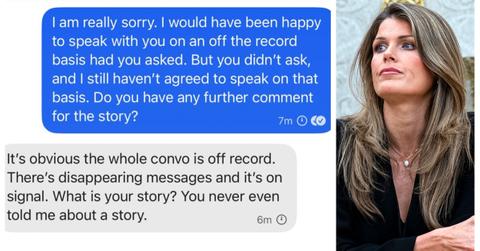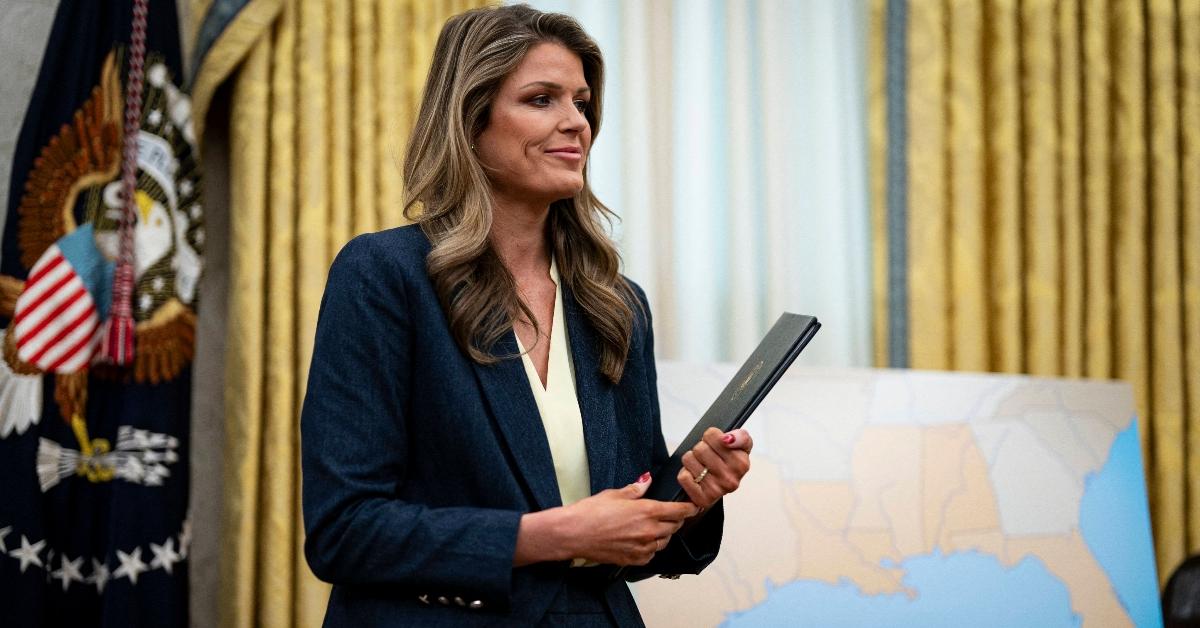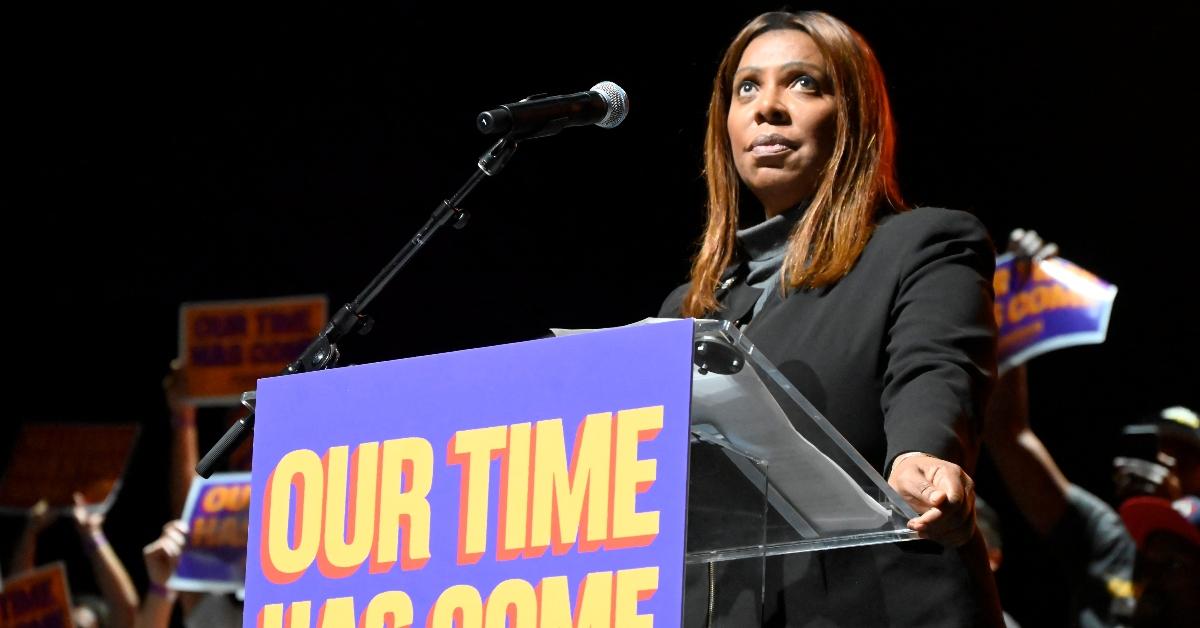Lindsey Halligan Scolds a Legal Journalist in a Signal Chat Then Tried to Do Take Backs
You can't call "off the record" after the fact.
Published Oct. 21 2025, 12:28 p.m. ET

Is it just us, or are President Trump's cronies obsessed with airing their business via texts and Signal chats? The most notable example is when former National Security Adviser Mike Waltz invited Atlantic editor Jeffrey Goldberg to a Signal group chat that included Secretary of War Pete Hegseth and Vice President JD Vance. The chat itself centered on classified information regarding plans for U.S. strikes in Yemen.
There have been leaked texts from a group of Young Republicans, all of whom are in their thirties, joking about sexual assault and putting their enemies into gas chambers. Paul Ingrassia, the nominee for the Office of Special Counsel, sent racist texts to a group chat with fellow Republicans. Then there is Lindsey Halligan, the interim U.S. attorney prosecuting Letitia James, and her Signal chat with a Lawfare reporter. Keep reading for more details.

Lindsey Halligan scolds a reporter in texts about Letitia James.
For context, Halligan is the only person willing to prosecute James based on allegations of mortgage fraud. No one else believed there was enough evidence to take this case to a grand jury. With that in mind, let's take a look at what Halligan had to say to Lawfare reporter Anna Bower.
On Oct. 11, 2025, Bower shared reporting from The New York Times to X, noting that James's great-niece "lives in the home that is the subject of the indictment." Halligan reached out to Bower via Signal to complain about what the reporter was pointing out. Again, the original reporting was conducted by a different journalist. Bower was merely highlighting what she found significant.
Halligan began by accusing Bower of reporting things that aren't true. After confirming Halligan's identity, Bower asked for clarification, which was met with evasion from the attorney. "I can't tell you everything, but your reporting is just way off," wrote Halligan. "I had to let you know." She goes on to say Bower doesn't have sources who are providing her accurate information. Bower reminds Halligan that she did not do the reporting and was merely commenting on another piece.
The conversation shifts from accusations about Bower to the reporter asking Halligan what The New York Times got wrong. Halligan claims the outlet disclosed grand jury information that is not a "full representation of what happened." In her reporting about these texts, Bower debunks this, citing Rule 6(e) of the Federal Rules of Criminal Procedure, which states rules of grand jury secrecy don't apply to the press.

Halligan retroactively claimed the Signal chat was off the record.
In subsequent exchanges, Halligan and Bower go into some detail regarding James's great-niece living in the rental property. In response to Bower pointing out the vague language of the indictment, Halligan says her reporting is biased. "If you want to twist and torture the facts to fit the narrative," writes Halligan, "there's nothing I can do." Bower repeatedly asks Halligan to tell her what she got wrong, which the attorney says she legally cannot do.
The texts turn to veiled threats as Halligan tells Bower she'll be "discredited when the evidence comes out." Halligan also tells Bower she should get her own sources instead of reporting on other work. By the end of the chat, Halligan suddenly tells Bower that, by the way, the entire exchange was off the record. "I'm sorry, but that's not how it works," says Bower. "You don't get to say that in retrospect."